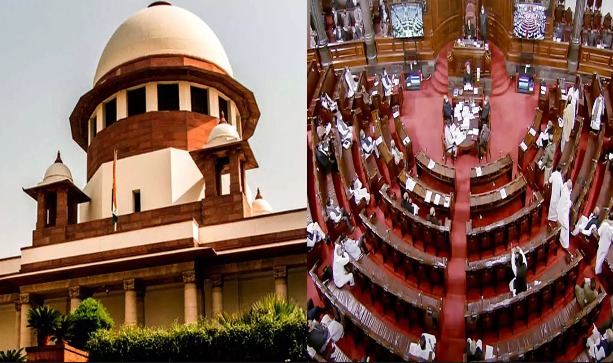
The Supreme Court recently dismissed a petition filed by an NGO, challenging certain provisions of the Conduct of Election Rules, 1961, which call for an open ballot system in Rajya Sabha elections.
A bench comprising of Chief Justice of India (CJI) DY Chandrachud, Justice PS Narasimha, and Justice JB Pardiwala was hearing a petition filed by an NGO, Lok Prahari, challenging the constitutional validity of the amendment which added Rule 39AA, thereby, introducing the open ballot system in February 2004.
The rule requires an MLA or an MP to show their ballot paper to a polling agent during Rajya Sabha and state legislative council polls.
It was submitted that the amendment was violative of Articles 80(4) and 14 of the Constitution besides being contrary to section 123(2) of the Representation of People Act (RPA).
According to the petitioner, a consequence of the rules was that an elector would lose his right to vote under Article 80(4).
While dismissing the petition, the bench stated that this system was previously upheld by a top court constitution bench in the case of Kuldeep Nayyar vs Union of India and that there was no need to tinker with it.
The bench highlighted that in the Kuldeep Nayyar case, a constitution bench ruled that an open ballot system does not imply that it is open to everybody, but only to the authorized political party representative and the same is true here.
“The Court in Kuldeep Nayyar held that underlining basis of open ballot was needed to prevent cross voting and maintain party discipline.”
The bench further emphasized that the open ballot system was in place only to prevent cross-voting and thus did not violate the concept of free and fair elections.
“The cancellation of a ballot where an elector refuses to disclose it to a representative of his political party…it would be unlikely to sustain the vote by putting the burden on the presiding officer. The court in the Kuldeep Nayyar case ruled that it did not violate the principle of free and fair voting,” the bench noted.




